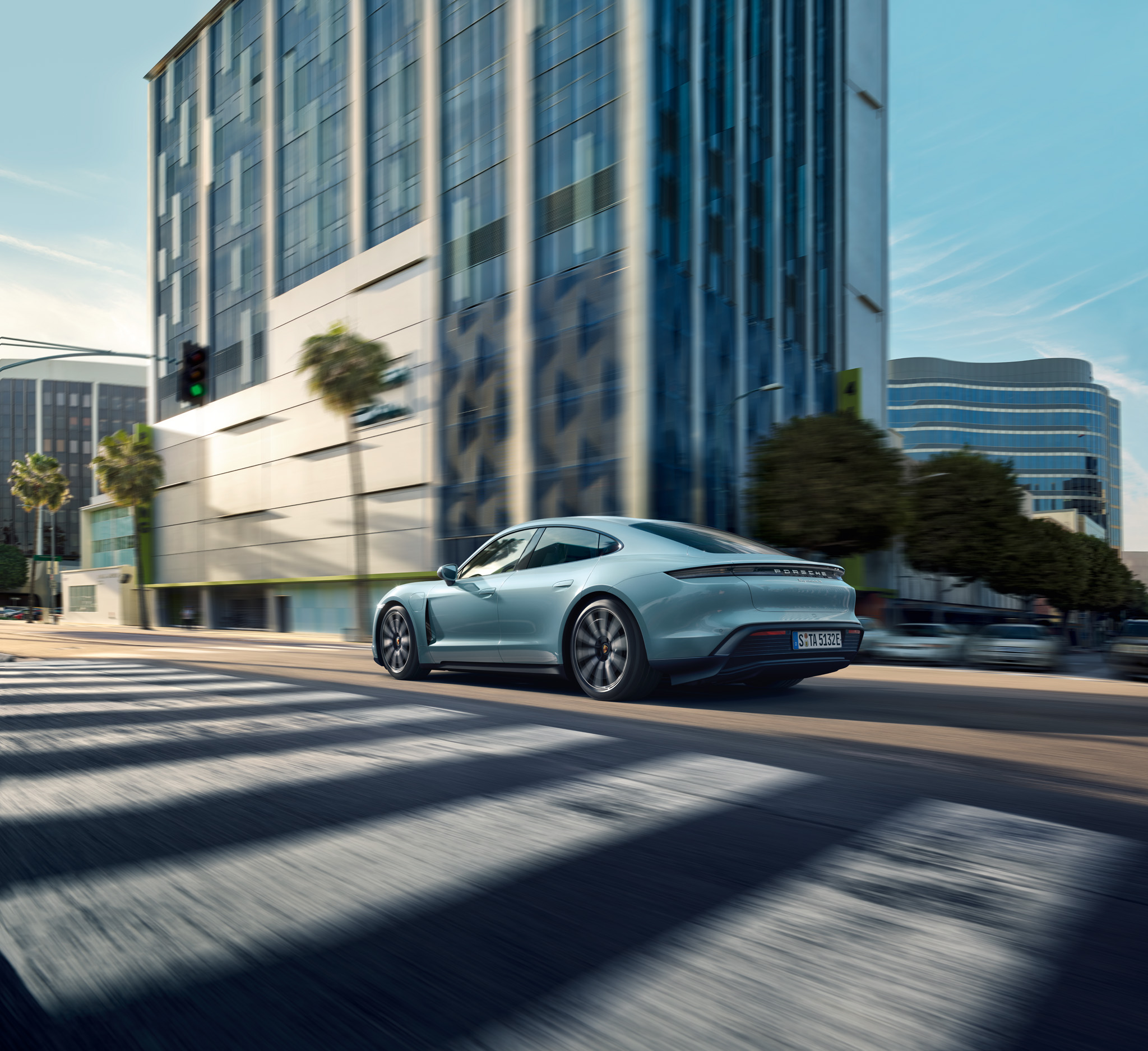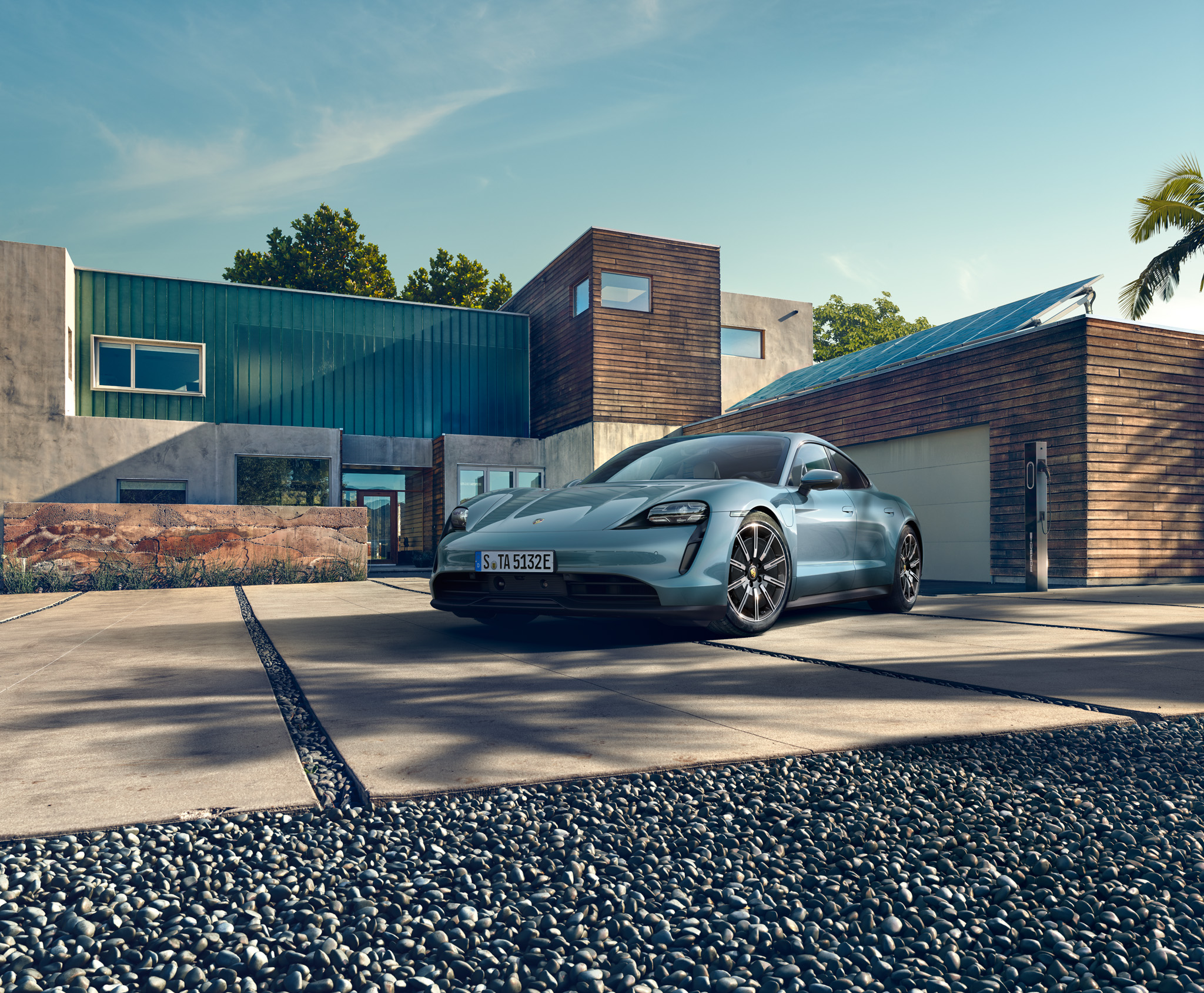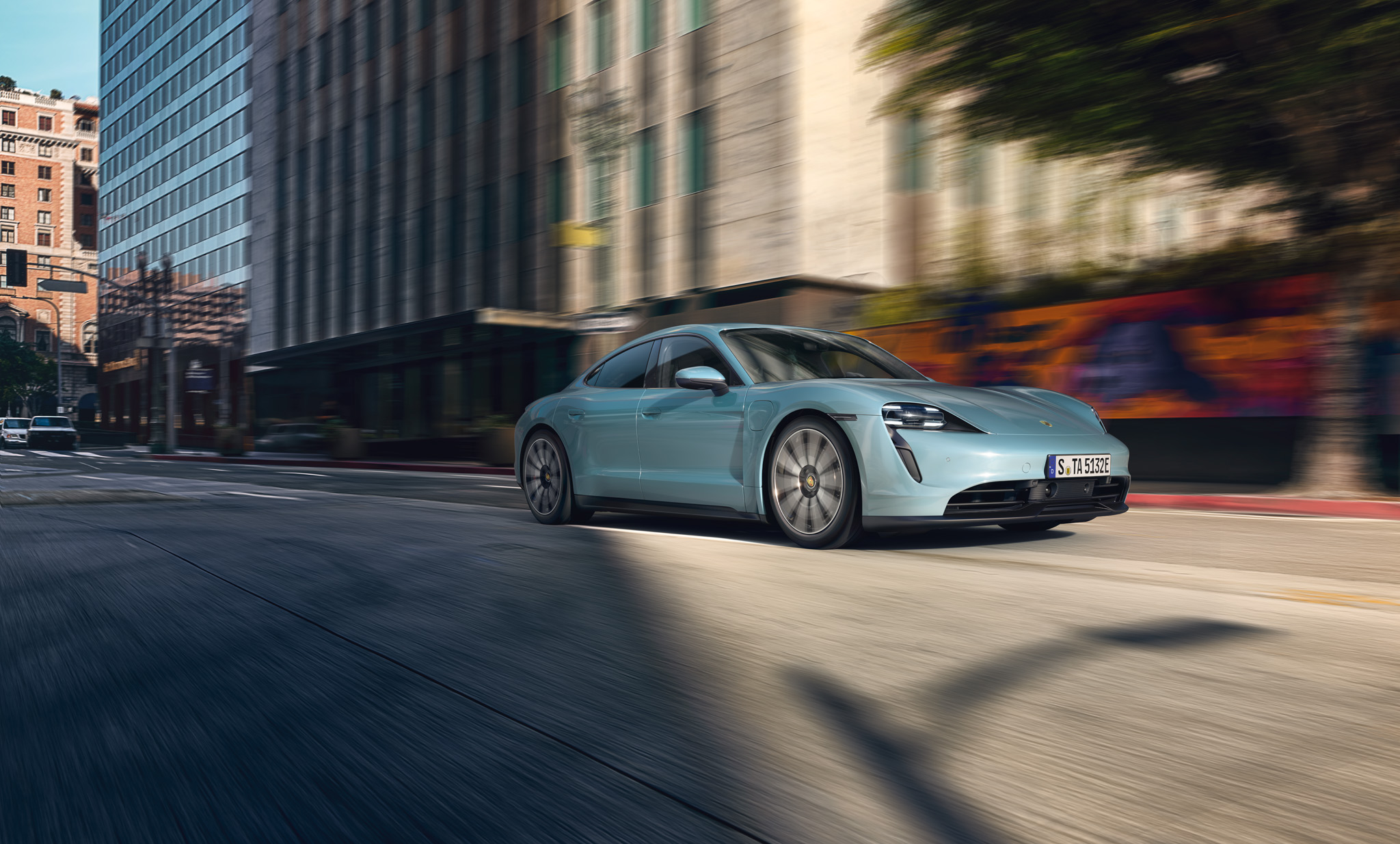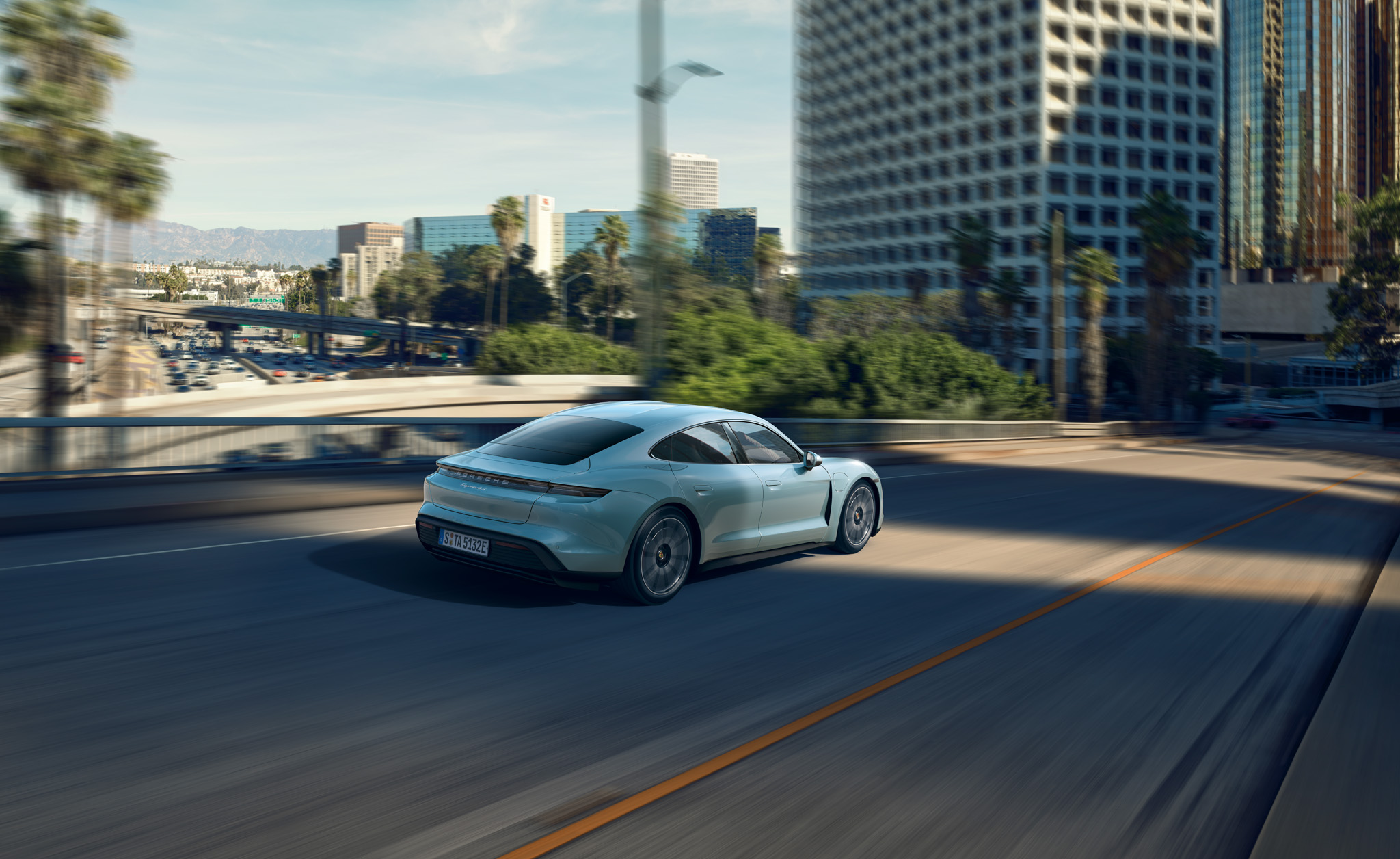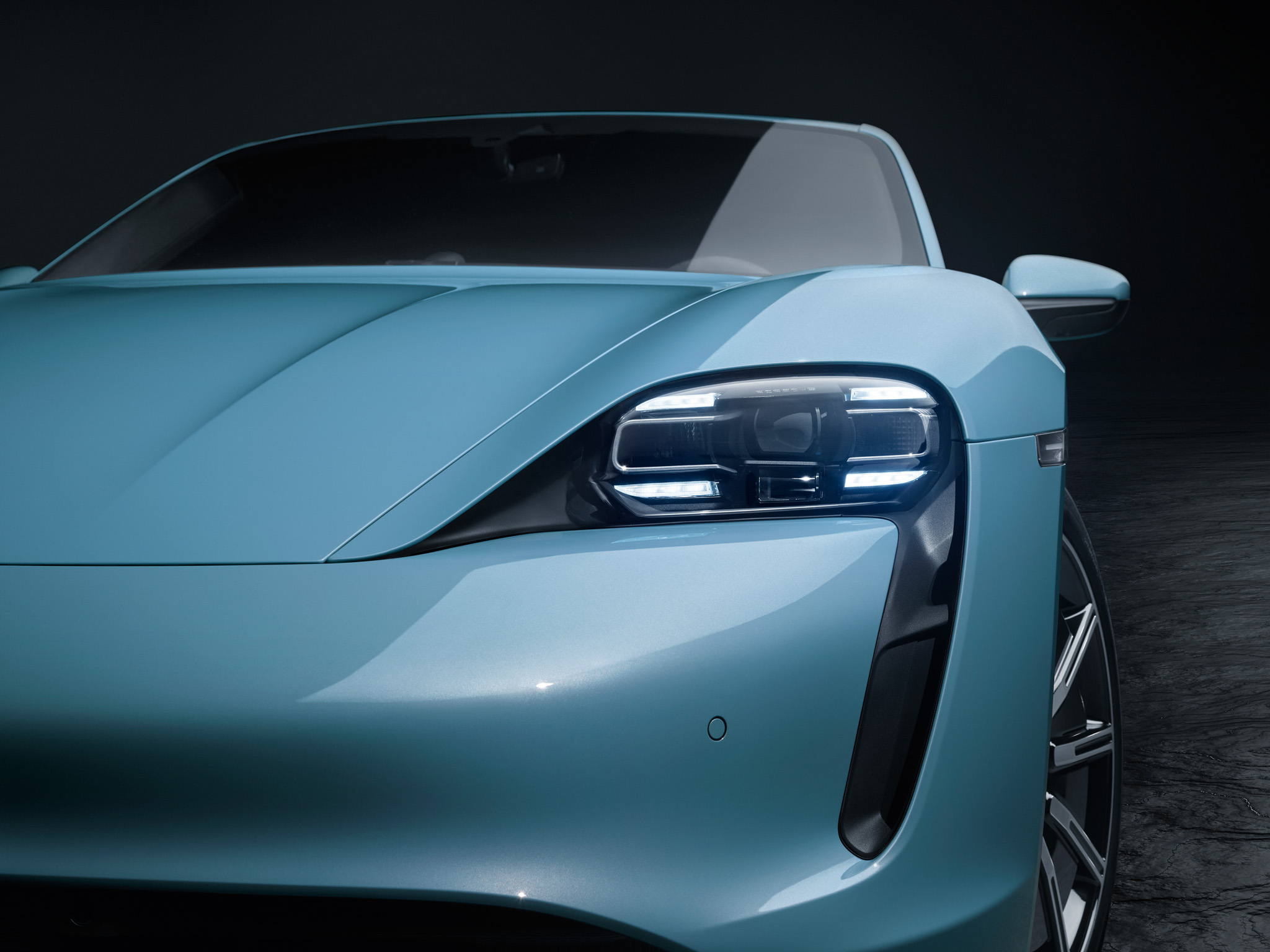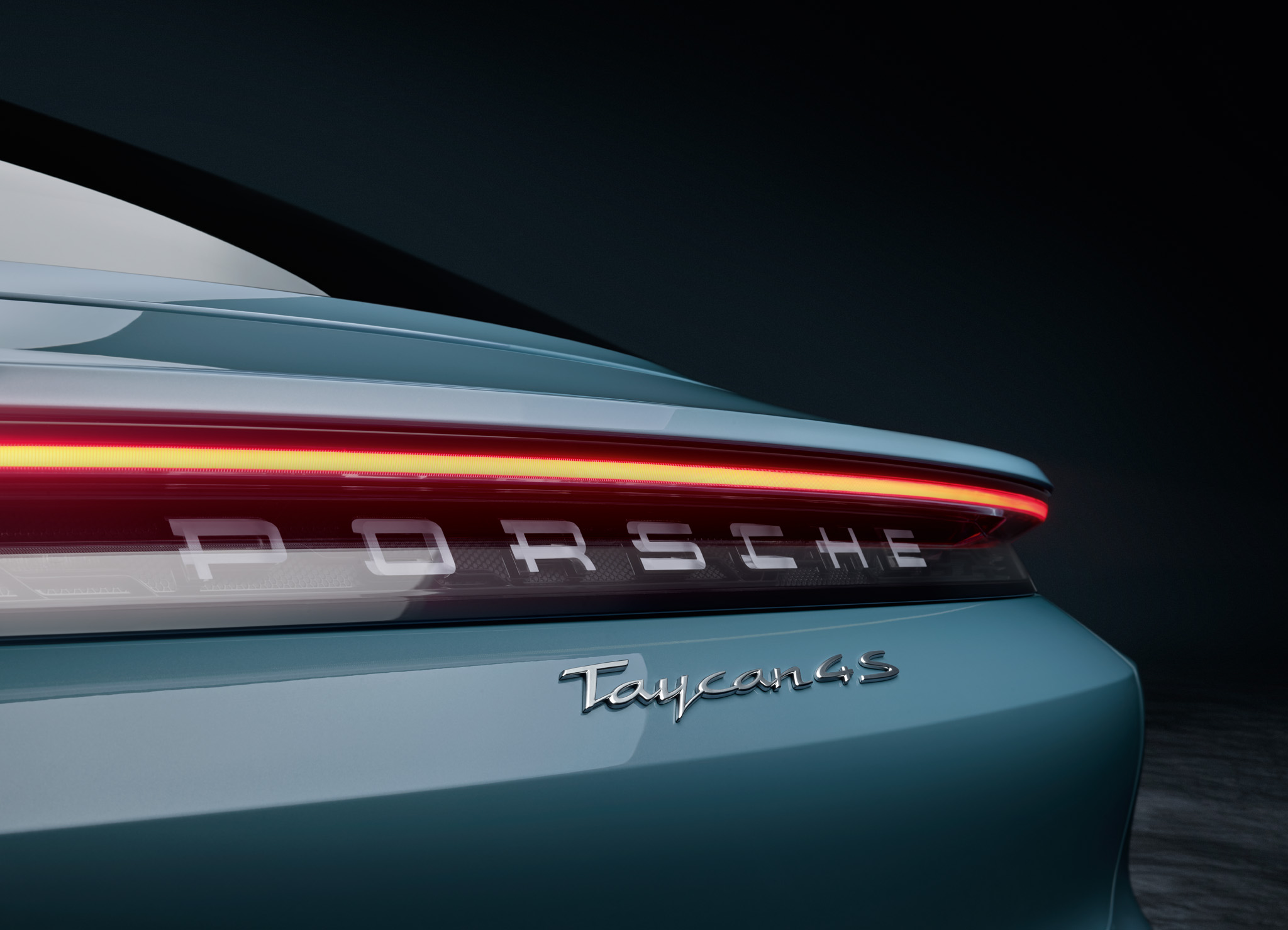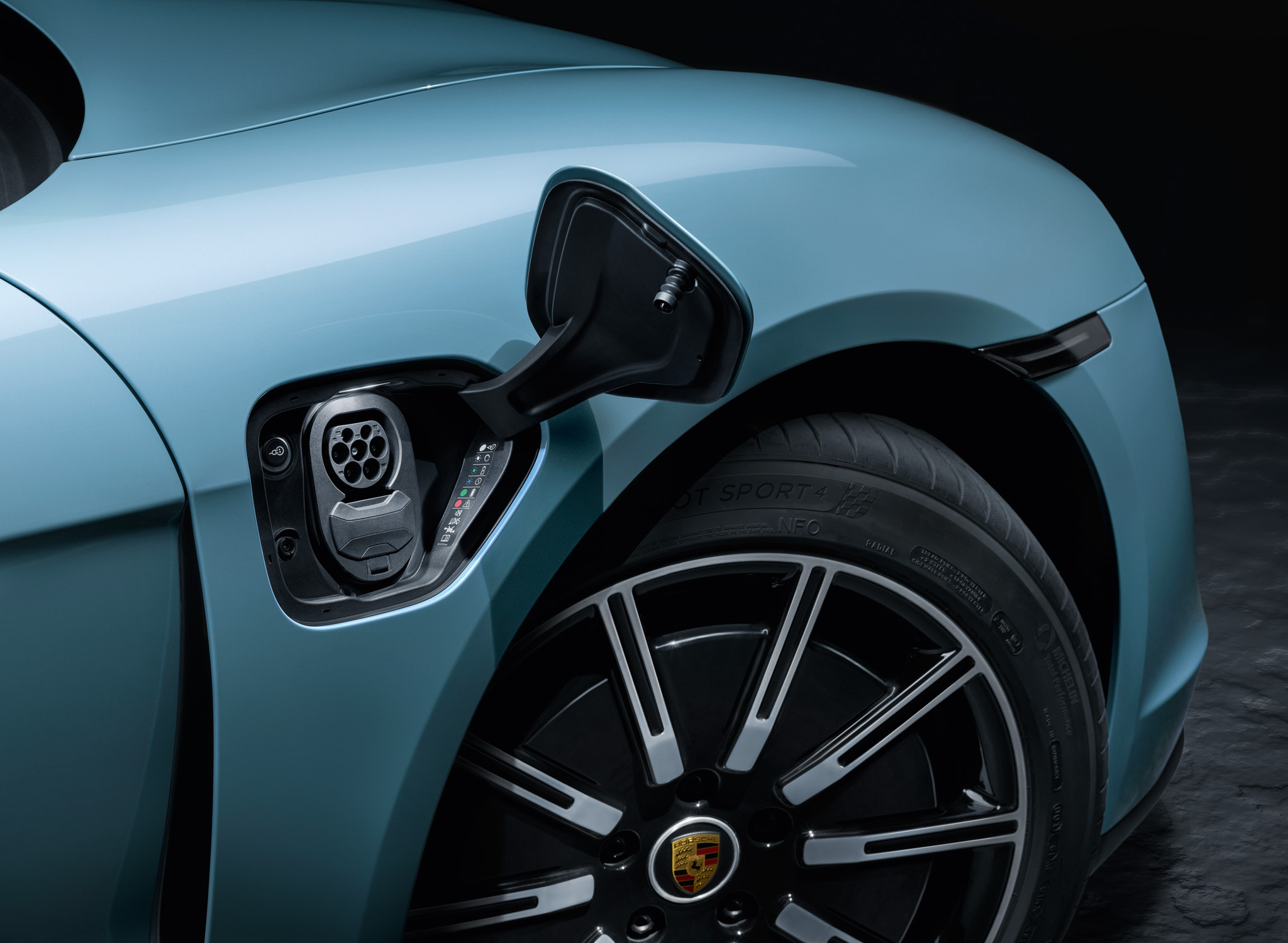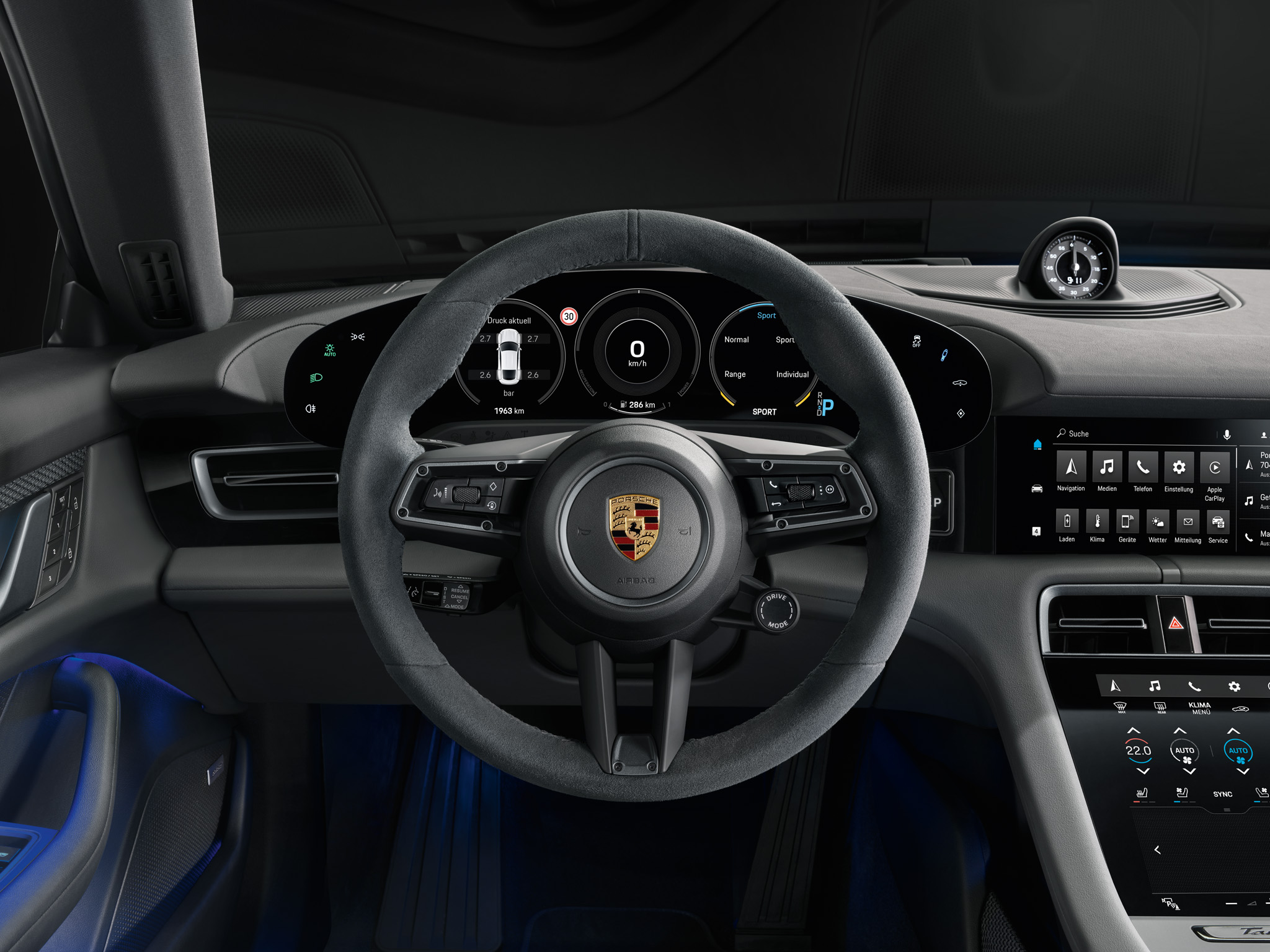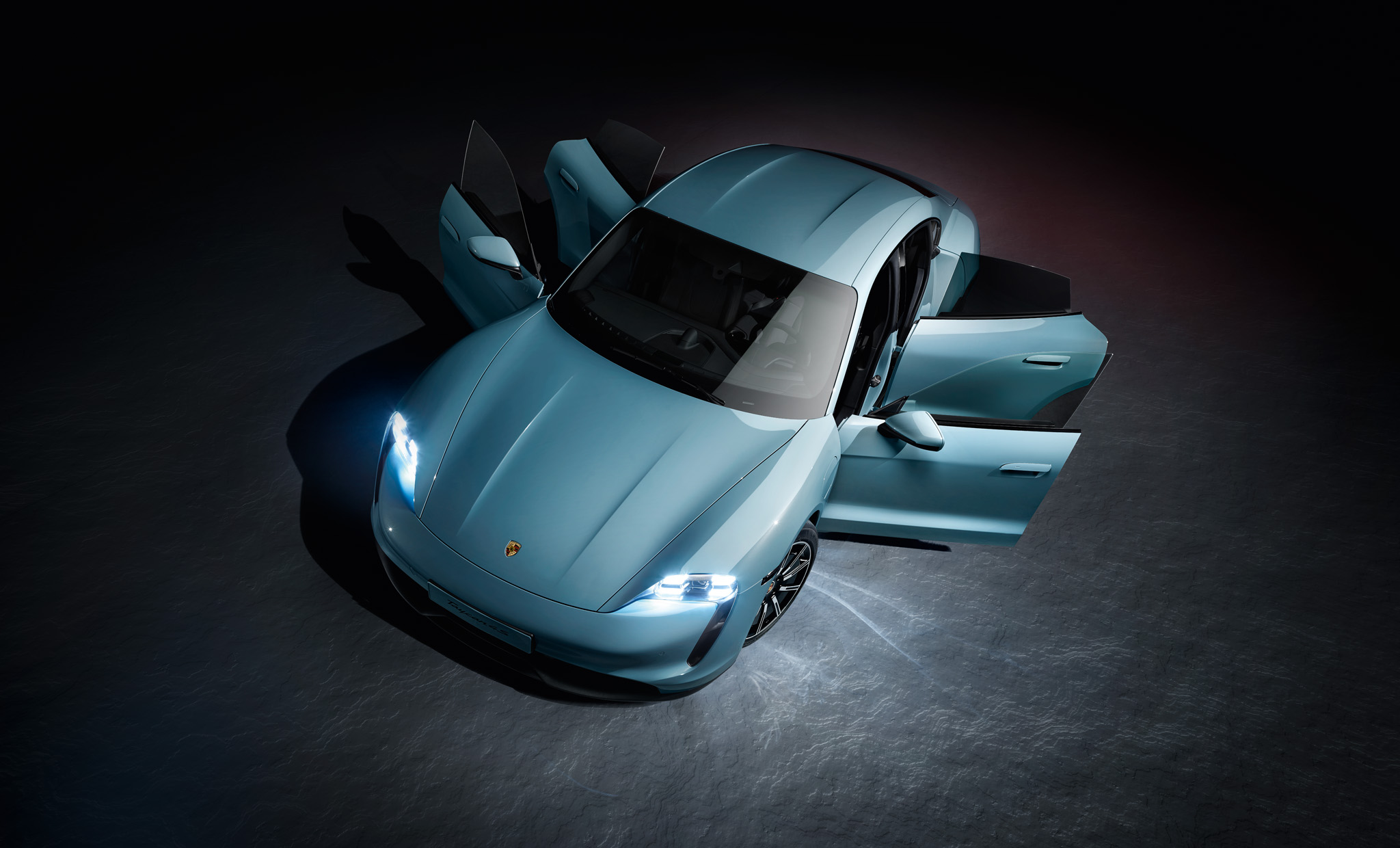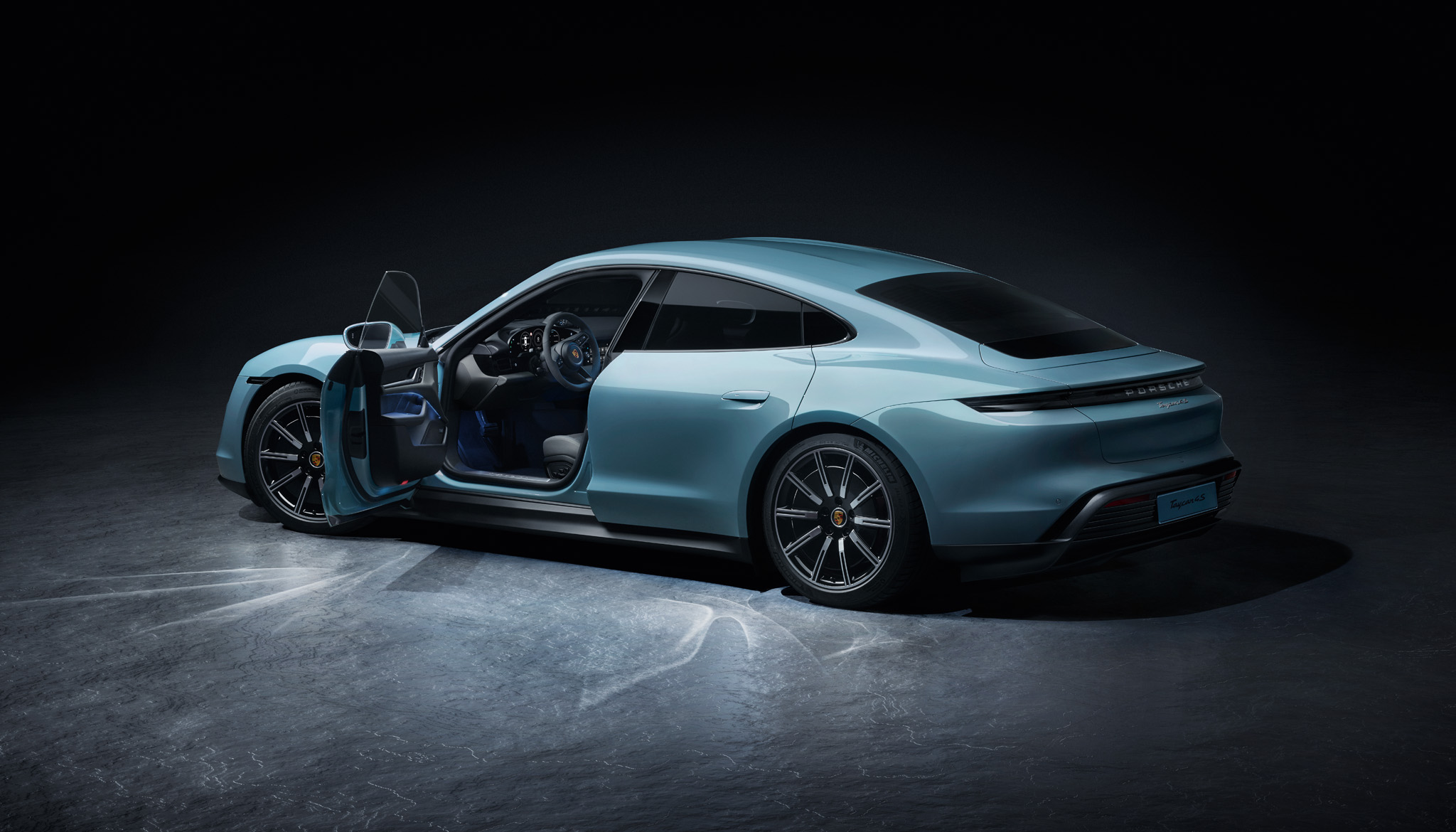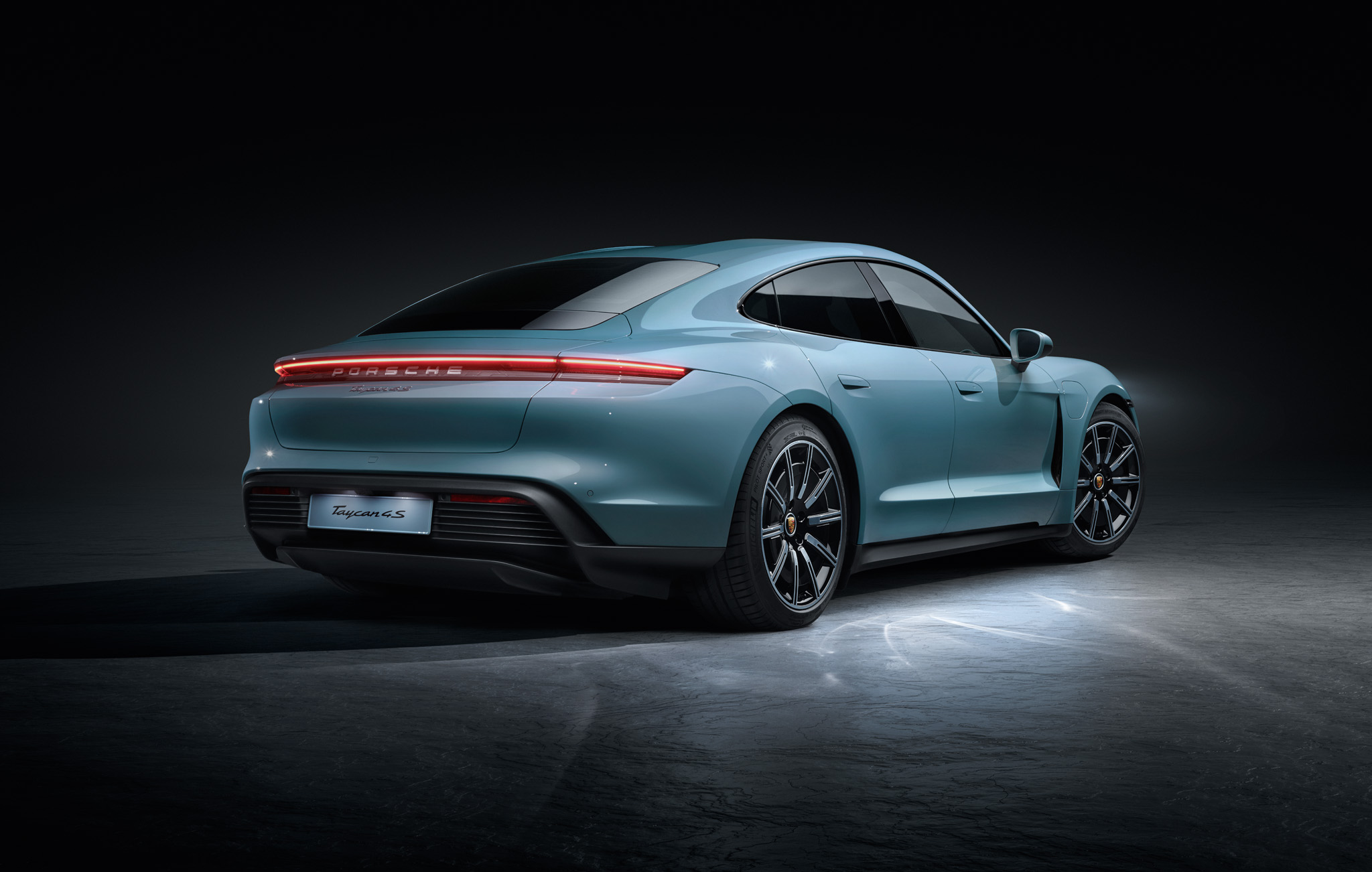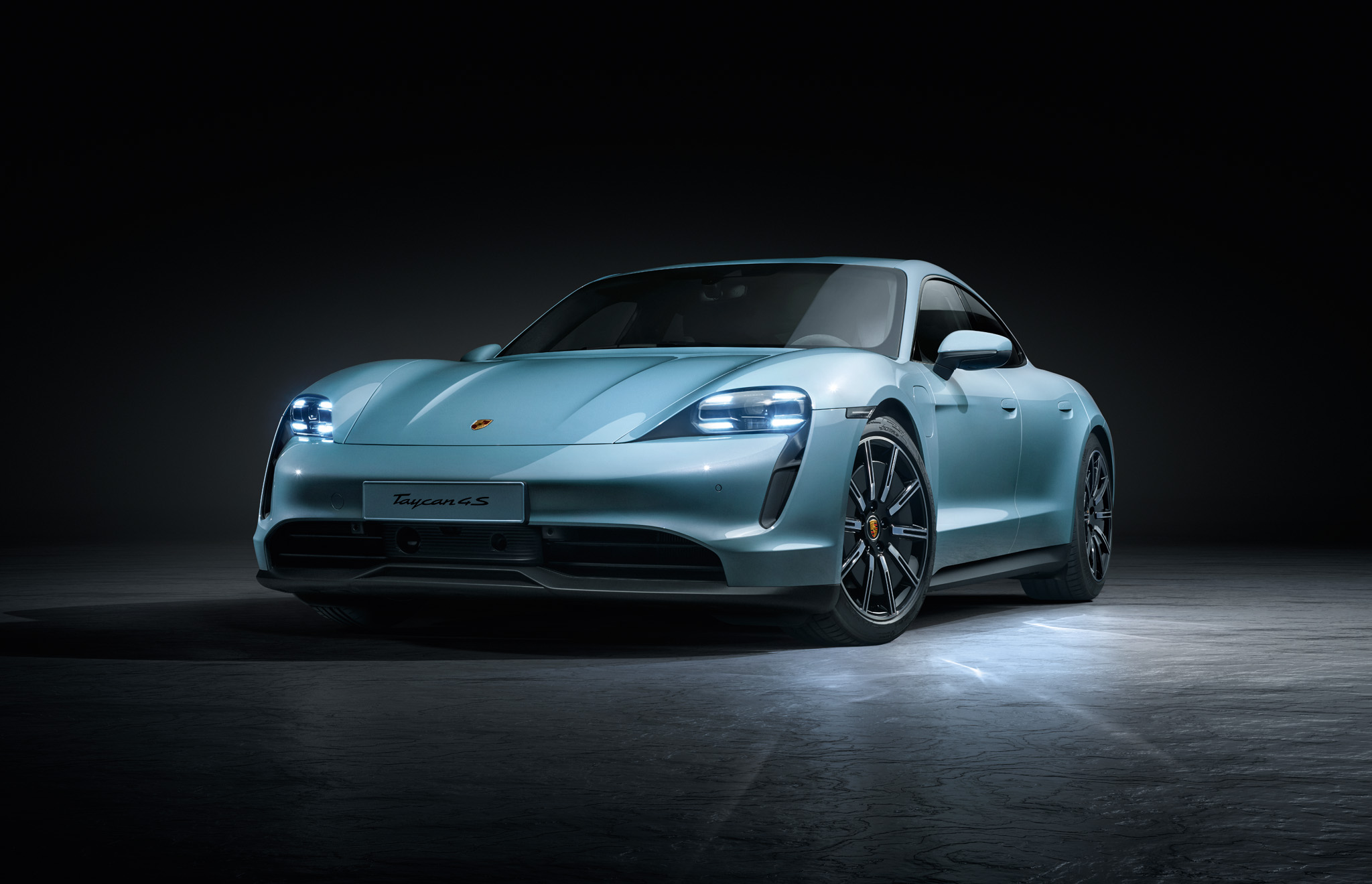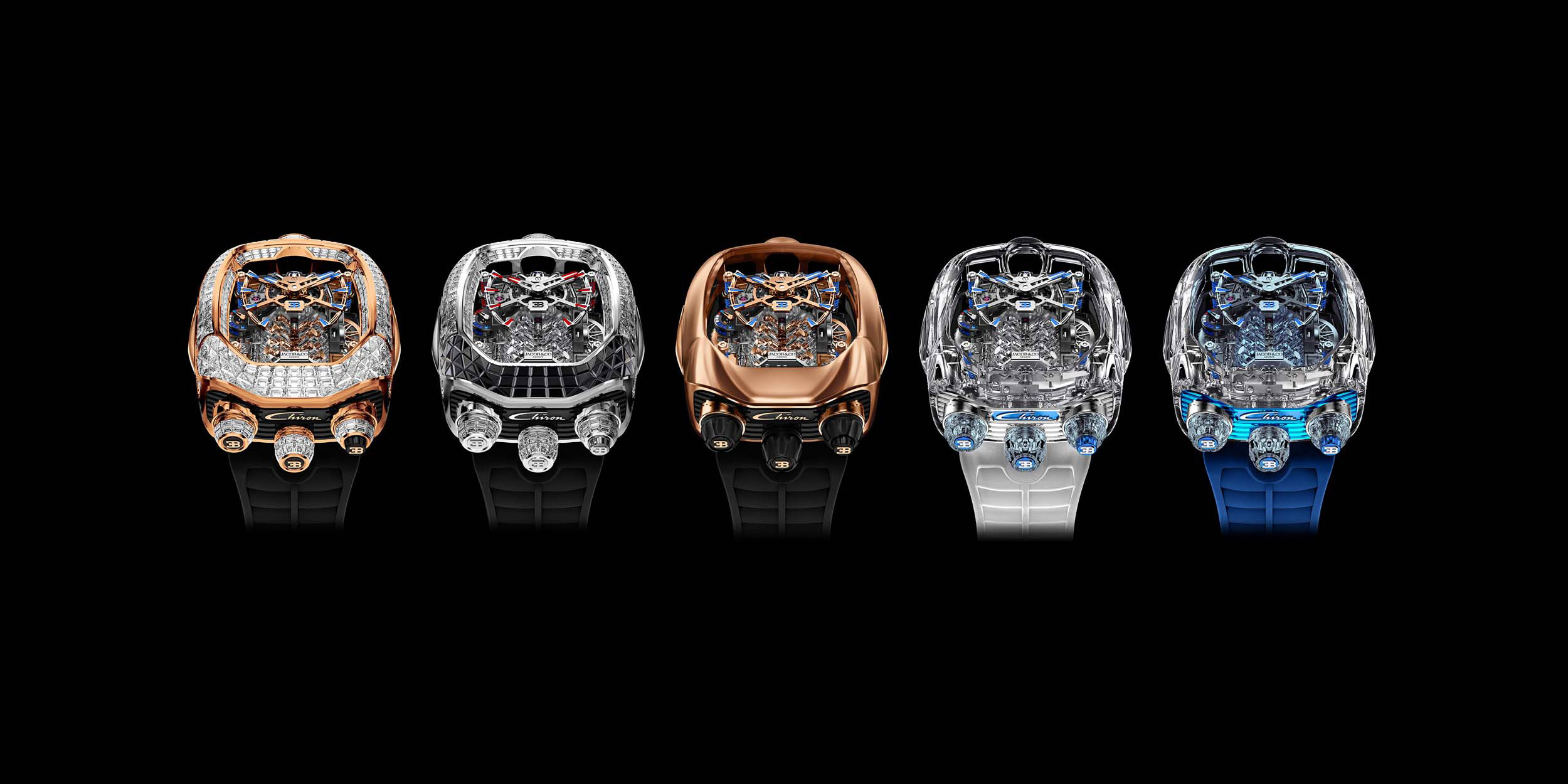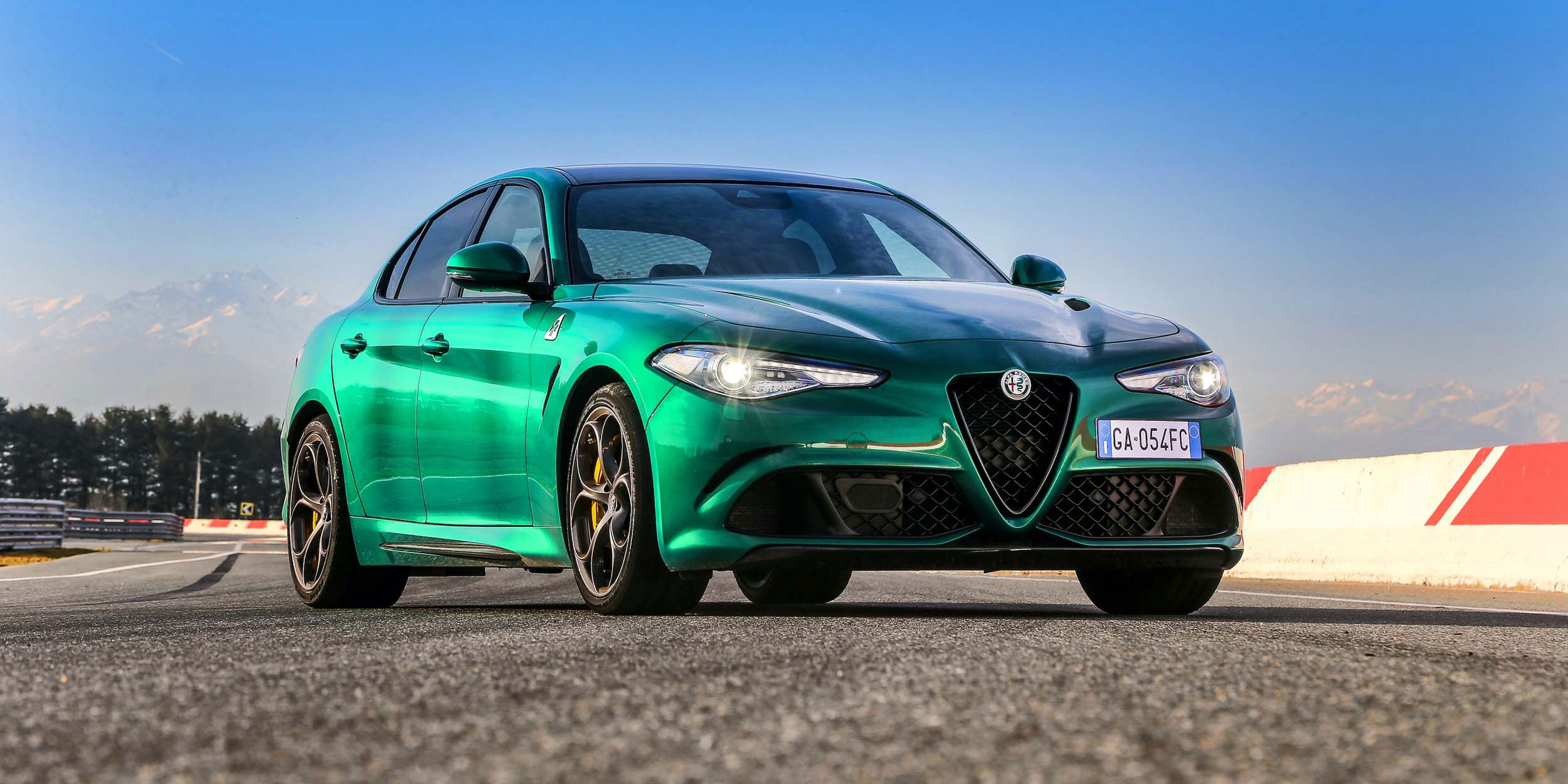Porsche extends electric sports car model range with the Taycan 4S
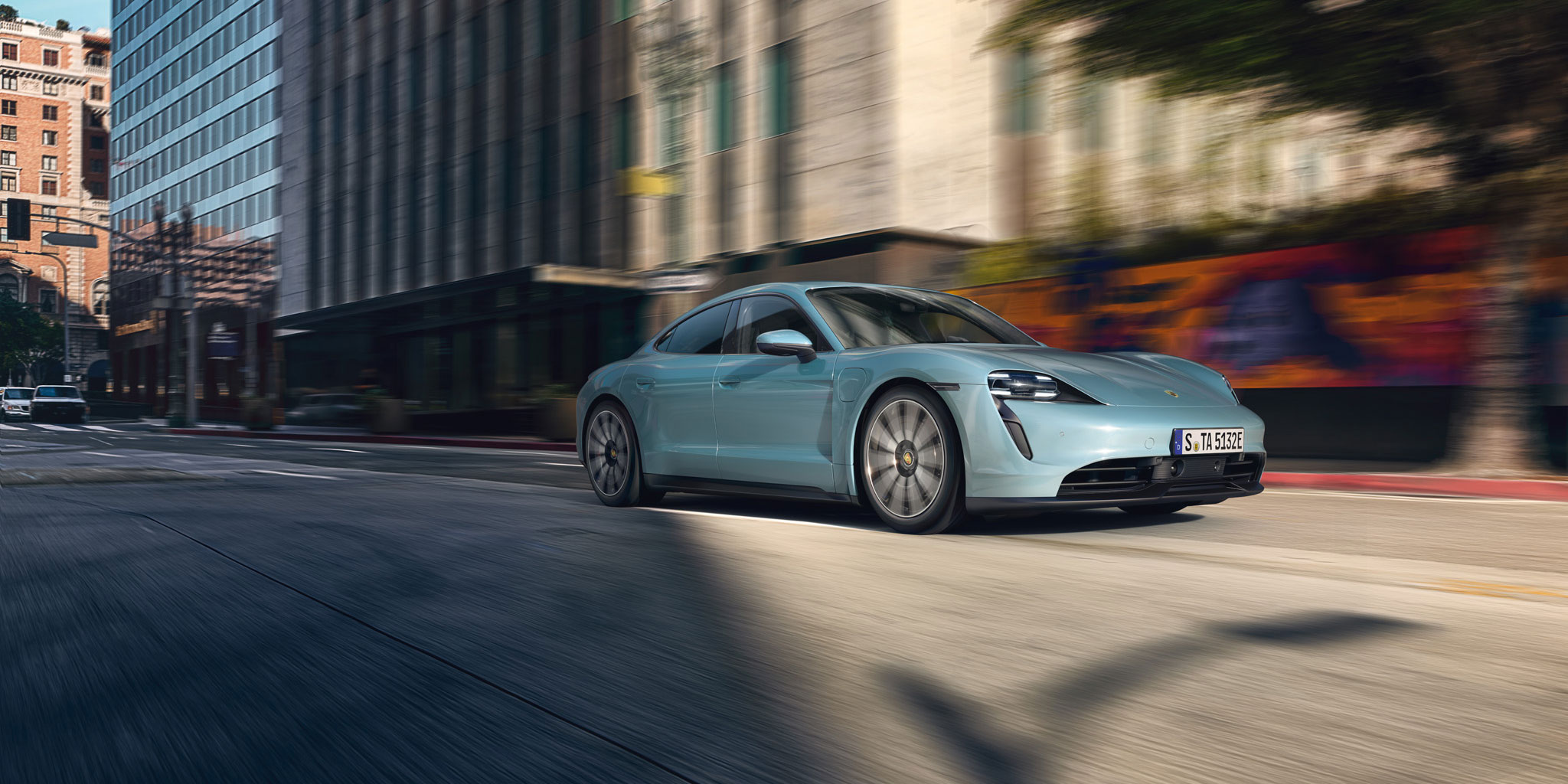
NEW ENTRY-LEVEL MODEL WITH TWO BATTERY SIZES AND A RANGE OF UP TO 463 KILOMETRES ACCORDING TO WLTP
Stuttgart. It was only in September that the new electric sports car from Porsche celebrated its high-profile premiere on three continents simultaneously. Now, the company is already presenting the third version of the sports saloon with the Taycan 4S. The new model is available with two battery sizes and delivers with the Performance battery up to 390 kW (530 PS) or with the Performance battery Plus up to 420 kW (571 PS). Following the Taycan Turbo S and the Taycan Turbo, the Taycan 4S is therefore the new entry-level model in the series. A single-deck Performance battery with a total capacity of 79.2 kWh comes as standard. The two-deck Performance battery Plus familiar from the Taycan Turbo S and Taycan Turbo is optionally available. The total capacity here is 93.4 kWh.
The power output and range therefore vary correspondingly: with the Performance battery, the Taycan 4S generates up to 390 kW (530 PS) overboost power output. Equipped with the Performance battery Plus, it delivers up to 420 kW (571 PS). In both variants, the Taycan 4S accelerates from a standing start to 100 km/h in 4.0 seconds. The top speed is also 250 km/h in both cases. The range is up to 407 kilometres with the Performance battery and up to 463 kilometres with the Performance battery Plus (in accordance with WLTP in each case) – the highest value of the current Taycan range. The maximum charging capacity (peak) is 225 kW (Performance battery) or 270 kW (Performance battery Plus).
INNOVATIVE DRIVE MACHINES AND DYNAMIC PERFORMANCE
Breathtaking acceleration, tractive power typical of sports cars and outstanding continuously available power – the new model 4S also features these strengths of the Taycan. The permanently excited synchronous machine on the rear axle has an active length of 130 millimetres and is therefore exactly 80 millimetres shorter than the corresponding drive component on the Taycan Turbo S and Taycan Turbo. The pulse-controlled inverter used on the front axle in the Taycan 4S operates with up to 300 amps, and the inverter on the rear axle with up to 600 amps.
With two permanently excited synchronous machines on the front and rear axles, in other words all-wheel drive, as well as a two-speed transmission on the rear axle, the drive architecture comprises the same main technical highlights as on its model brothers. The same also applies to the intelligent charging management and exemplary aerodynamics. With a cd value from 0.22, the aerodynamics makes a significant contribution to low energy consumption and thus long range. The clear, puristic exterior design with Porsche DNA is also typical for the Taycan, as is the unique interior design with wide display band.
PURISTIC EXTERIOR DESIGN WITH PORSCHE DNA
With its clear, puristic design, the Taycan signals the beginning of a new era. At the same time, it retains the unmistakable Porsche design DNA. From the front, it looks particularly wide and flat with highly contoured wings. The silhouette is shaped by the sporty roof line sloping downward to the rear. The highly sculpted side sections are also characteristic. The sleek cabin, the drawn-in rear C-pillar and the pronounced shoulders of the wings result in a sharply emphasised rear, typical of the brand. There are also innovative elements such as the glass-effect Porsche logo, which has been integrated into the light bar at the rear.
Distinguishing features of the Taycan 4S compared with the Turbo and Turbo S include the aerodynamically optimised 19-inch Taycan S Aero wheels and the red-painted brake callipers. The front apron with new geometry, side sills and rear diffuser in black ensure further visual differentiation. LED headlights including Porsche Dynamic Light System Plus (PDLS Plus) are equipped as standard.
UNIQUE INTERIOR DESIGN WITH A WIDE DISPLAY BAND
The cockpit also signals the start of a new era with its clear structure and completely new architecture. The free-standing, curved instrument cluster forms the highest point on the dashboard. This places a clear focus on the driver axis. A central 10.9-inch infotainment display and an optional passenger display are combined to form an integrated glass band in a black-panel look.
As standard, the Taycan 4S comes with a partial leather interior as well as front comfort seats with eight-way electrical adjustment.
With the Taycan, Porsche offers an entirely leather-free interior for the first time. Interiors made from innovative recycled materials underscore the sustainable concept of the electric sports car.
CENTRALLY NETWORKED CHASSIS SYSTEMS
Porsche uses a centrally networked control system for the Taycan chassis. The integrated Porsche 4D Chassis Control analyses and synchronises all chassis systems in real time. As standard, the Taycan 4S features adaptive air suspension with three-chamber technology including electronic damper control PASM (Porsche Active Suspension Management).
The Taycan 4S has six-piston fixed-calliper brakes on the front axle with internally vented cast iron brake discs. The brake disc diameter is 360 millimetres on the front axle and 358 millimetres on the rear axle. Four-piston brakes are used on the rear axle. The brake callipers of the brake system are painted red.
The Taycan 4S can be ordered immediately and will arrive in European dealerships in January 2020. Prices in Germany start at 105,607 euros – including VAT and country-specific equipment.
** Taycan 4S with Performance battery: combined electrical power consumption 24.6 kWh/100 km; combined CO2 emissions 0 g/km
** Taycan 4S with Performance battery Plus: combined electrical power consumption 25.6 kWh/100 km; combined CO2 emissions 0 g/km
The consumption and CO2 emission values were calculated according to the new Worldwide Harmonised Light Vehicle Test Procedure (WLTP). The NEDC values derived from this must continue to be specified for the time being. These values cannot be compared with the values calculated on the basis of the previously used NEDC test.
Further information on the official fuel consumption and official, specific CO2 emissions of new passenger cars is available in the publication entitled “Guide on the fuel economy, CO2 emissions and power consumption of all new passenger car models offered for sale on the German market”, which is available free of charge from all sales outlets and from Deutsche Automobil Treuhand GmbH (DAT).
